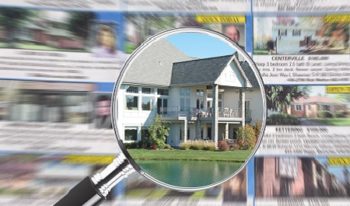
Defining real estate security can be confusing because the legal definition is ambiguous. Other investments, such as stocks and bonds, are clearly investments. Property investment, though, is complicated in several ways. It is:
- A security under certain conditions
- An asset, but may also be a liability
- Tangible
Investors expect financial securities to generate profit. They exhibit a common enterprise. Finally, they depend on others’ efforts solely to make the investment successful.
Click to Open Outline
Real Estate as Security
Sometimes the law considers real estate as a security, and sometimes it does not. The ownership of real property is not a security in and of itself. Whether it is a security depends on your involvement. It becomes security when you sign an investment contract that includes three specific components. These include:
- Expectation of profit
- Common enterprise
- Depends solely for its success on the effort of others
That last component is the one that makes investors uncertain. If you enter a contract and have some control over how the property is managed then it may not be a security. However, courts leave this ambiguous because they often rule differently with varying levels of ownership involvement.1
Is Real Estate an Asset?
Real estate is an asset. “An asset is a resource with economic value that an individual, corporation or country owns or controls with the expectation that it will provide a future benefit.”2
- It is a tangible asset, and some investors say it is its own class
- It carries significant costs, which can make it a net liability
Some financial writers tell us that property is a liability. Their arguments have merit. However, a more accurate way to say it would be that property is an asset with liabilities.
What Type of Asset is Real Estate?
Real estate is a tangible asset. These include both real property and commodities. These include:
- Your home
- Investment properties
- Shares of funds that invest in property
It is obvious why a property is tangible, but many investors carve out real estate as its own asset class. The reason is it has unique laws for other classes. It reacts to market forces such as inflation and depreciation differently than other assets, even other tangibles.
Is a House a Liability or Asset?
A house is an asset that has costs. Whether the house is a net liability depends on how much you need to spend on it and what you use your property for.
- Your primary residence is a net liability
- A rental property may be a net asset
- An investment property, renovated and sold, may net a profit
- Shares in a real estate investment company may generate positive cash flow
Whether a property is a liability depends on use and management. The reason your home will not make money is because of use. You are not renting it, so it does not generate cash flow. Also, when you sell it you probably will not recoup the expense you put into the house from the increase in property values.
Is Your Primary Residence an Asset?
Your primary residence is an asset and possibly a liability. Therefore, you should not look at it as an investment.
- The structure depreciates
- You do not use it for an ongoing income
- Your home has a primary purpose other than investment
Your primary residence is your home. Its primary purposes are for shelter, comfort, and privacy. Investment should not be your primary focus for your home.3
Carrying Costs
Carrying costs on a primary residence is a significant liability. Your home requires ongoing payments, which include:
- Mortgage payments
- Insurance
- Utilities
- Taxes
- Maintenance
These are significant expenses. If you live in the house you don’t mind paying them because it is the roof over your head. As an investment, however, these high almost always mean that you will not make money on this investment.
Generate Cash Flow
Your primary residence does not generate cash flow. Good investments generate ongoing cash flow if you hold them. A couple of examples are:
- Stocks generate dividends
- Investment property generates rent
Your home won’t generate any income unless you rent a room in your house, or you live in a multi-family property. Even if you lease part of your property you will not get enough rent to pay for carrying costs.
Final Thoughts on Real Estate Security
A real estate security is an investment you enter into with someone else. You are not involved in the maintenance or management of the property. An obvious example is buying shares in an investment company.
A more subtle example would be if you enter into a partnership or invest in a limited liability corporation (LLC). In this case, courts may or may not consider you an investor. It depends on your level of involvement in the venture.









